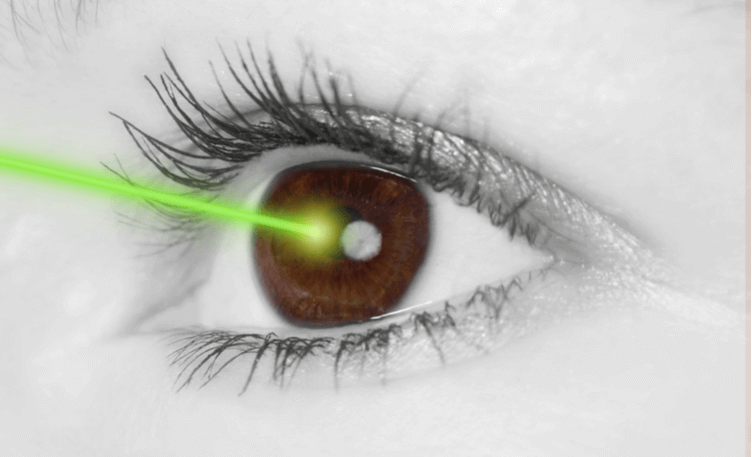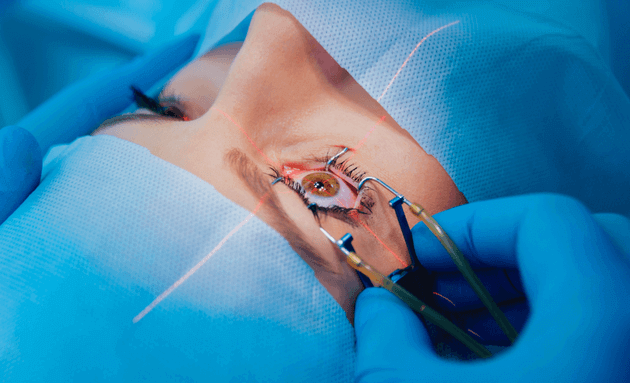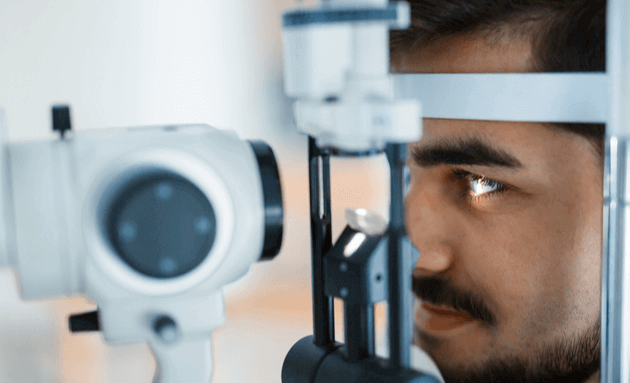What You Should Know About LASIK Eye Surgery

The thought of a laser beam passing through your eye can make you uncomfortable. This is possibly what one imagines when they come across the term laser eye surgery (LASIK). Indeed a LASIK Surgery involves the use of a laser for correcting vision problems. However, knowledge half received is dangerous. Read on to understand the process of LASIK Surgery and whether you qualify for the same.
What is LASIK Eye Surgery?
LASIK stands for laser-assisted in-situ keratomileusis. This procedure is used for those suffering from specific vision problems such as nearsightedness or myopia (difficulty in seeing distant objects), farsightedness or hyperopia (difficulty in seeing objects closer to you), and astigmatism (a condition in which your eyeball is not correctly shaped).
How is LASIK Surgery performed?

A LASIK surgery corrects the cornea of the eye. The cornea is the clear front part of the eye through which light travels to the retina (back of the eye). It helps your eye focus on the image before you by deciding how much light to allow in. fWhen your eye loses its ability to focus light rays, it can cause vision problems which can be corrected by using spectacles or eye lenses. A LASIK eye surgery is however meant to permanently correct your vision problem.
During this surgery, your eye surgeon will use a microkeratome or a femtosecond laser. This is an instrument used for creating a thin layer flap in the cornea which is then peeled back to reshape the underlying corneal tissue. Reshaping of the cornea will result in the proper focus of light that will pass onto the retina. The thin layer flap of the cornea is then put back in place, thereby, completing the surgery.
This surgery usually takes place for ten minutes while your eye is put under local anaesthesia. This is done using eye drops and there is no use of needles. In case you are tensed about the surgery, your doctor may allow mild sedation to keep your nerves calm.
This surgery involves very little or no pain at all. Vision is generally corrected by the day after the surgery. There is a drastic reduction in the use of spectacles or eye lenses post this surgery. Further, it entails no bandages or stitches.
Side-effects of LASIK Surgery
There have been problems of under-correction in which too little tissue from the eye was removed. On the contrary, an overcorrection might result in removing too much tissue. In these cases, you would be suggested another LASIK surgery.
The thin layer flap which is put back after the laser correction can lead to complications like an eye infection or excess tears. Negative changes in vision or vision loss could also occur. These complications are treatable if you visit your doctor immediately.
Your surgeon will prescribe certain medications for you after the surgery. You will be given eye drops by your doctor to prevent infection or inflammation and to keep your eyes moist as they usually tend to get dry after the surgery. Your eyes will heal rapidly but your vision might be a bit blurry for a day. Side-effects other than dry eyes include blurry vision or glare for a few days. In these times, it is advised to not drive.
Do you qualify for LASIK surgery?

LASIK eye surgery may not work for you if you have certain underlying conditions. These include:
- If you suffer from autoimmune disorders, such as rheumatoid arthritis.
- If you have a weak immune system due to immunosuppressive medications or HIV.
- If your eyes are persistently dry.
- If your vision is unstable due to certain medications, hormonal changes, pregnancy, breastfeeding or age.
- If you have conditions that affect the eye area, such as Keratitis, uveitis, or herpes simplex; glaucoma, cataracts, eye injuries or lid disorders.
- If you have an eye disease called keratoconus, or a family history of it.
- If you have severe nearsightedness, very large pupils.
- If you have age-related eye changes leading you to have a vision that is less-clear (presbyopia).
- If you participate in sports that are associated with blows to the face
You would be considered a good candidate for a LASIK surgery if you are at least 18 years of age, you have been using eyeglasses for at least 2-3 years, and your eyesight number has been stable for at least one year. In addition to this, having no history of eye disease and not being pregnant or nursing are also important factors.
It is important to consult your doctor on whether you should opt for LASIK surgery.






